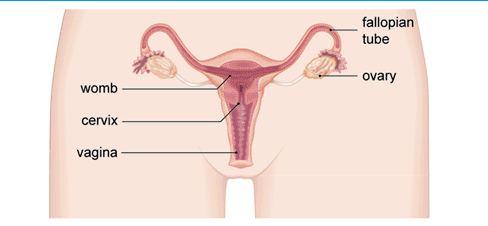What Is Vaginal Hysterectomy
How Is Your Sex Life Affected
Vaginal hysterectomy is a surgical procedure where the uterus is removed entirely through the vagina.

During the process, the surgeon detaches the uterus from the ovaries, fallopian tubes and upper vagina, as well the blood vessels and connective tissues that support it. The uterus is then taken out through the vagina.
Your surgeon may also recommend a Laparoscopic Assisted Vagina Hysterectomy (LAVH) or an abdominal hysterectomy.
In an LAVH the surgeon make a “keyhole” incision in either the navel or abdomen. A laparoscope is inserted through this incision to guide him in the removal of the uterus and/or fallopian tubes and ovaries through the vagina (birth canal).
A six-to eight inch incision is made in your lower abdomen in an abdominal hysterectomy. The uterus and other reproductive organs are then removed via that incision. Compared to a vagina hysterectomy, an abdominal hysterectomy is a major surgical procedure. Hence, it is more expensive, requires longer hospital stay and recovery time.
Which procedure is more appropriate is determined by the surgeon. He will make his decision based on each individual’s case, the reason for the hysterectomy and the medical history and condition of the patient.
Why Are Vaginal Hysterectomies Done
Hysterectomies are performed to treat many different gynecologic problems. Some of which are:-
- Uterine fibroids
- Severe vaginal bleeding
- Chronic pelvic pain
- Uterine prolapse
- Ovarian cysts
- Endometriosis
- Pelvic adhesions caused by pelvic inflammatory disease
Needless to say, a woman will think long and hard before deciding to have a hysterectomy. Her number one fear will be sexual problems. How will the hysterectomy affect her sex life?
Some changes to sexual functioning are unavoidable. Some women will find that they miss the contractions of the uterus during orgasm. The physical sensation of deep penetration during love making will be different if the cervix has been removed too.
If the vaginal hysterectomy also involves removal of the ovaries, she will experience menopausal symptoms due to less production of the sex hormone-estrogen.
But these changes do not mean the end of your sex life. Although many women worry that they will lose their libido or that sex will become painful and unpleasurable after a hysterectomy, a survey done by the University Of Maryland Medical School has reported very good news.
The 1,300 women who took part in the survey can assure you that there is hope after a vaginal or abdominal hysterectomy.
The survey assessed how the women’s sex lives had been affected by their hysterectomies. They were interviewed for up to two years after their surgery, answering questions about how frequently they experienced pain, orgasm or vaginal dryness during sexual intercourse and how often they desire sex.
Not only did the women said that they were having sex more often, they were having better sex, stronger and more frequent orgasms, and less pain during intercourse.
Now, why would sex be better after a hysterectomy?
Think about it: if you have serious gynecological problems such as severe bleeding, prolapsed and chronic pelvic pain, wouldn’t you feel better when a hysterectomy has relieved all these sufferings?
Furthermore, the women no longer have to worry about getting pregnant, so it was not surprising that their desire for sex was rekindled.
Well, all this good news does not mean that you can jump right into bed after surgery! Your body has been through a bit of trauma and needs some time to recover.
You should wait for at least four to six weeks (or on the advice of your surgeon) before having vaginal sex. It doesn’t mean that you and your partner can’t indulge in romance and affection, by kissing, touching and hugging each other and pleasuring each other orally!
Talk to your partner about the changes that you go through after a vaginal hysterectomy, so that he understands and can meet your needs. Tell him that your recovery time post surgery is the best opportunity for him to shower you with tender loving care.
If you need support from women who have gone through a vaginal hysterectomy, click here.
Back to top
- Home
- Vaginal Pain
- Vaginal hysterectomy

